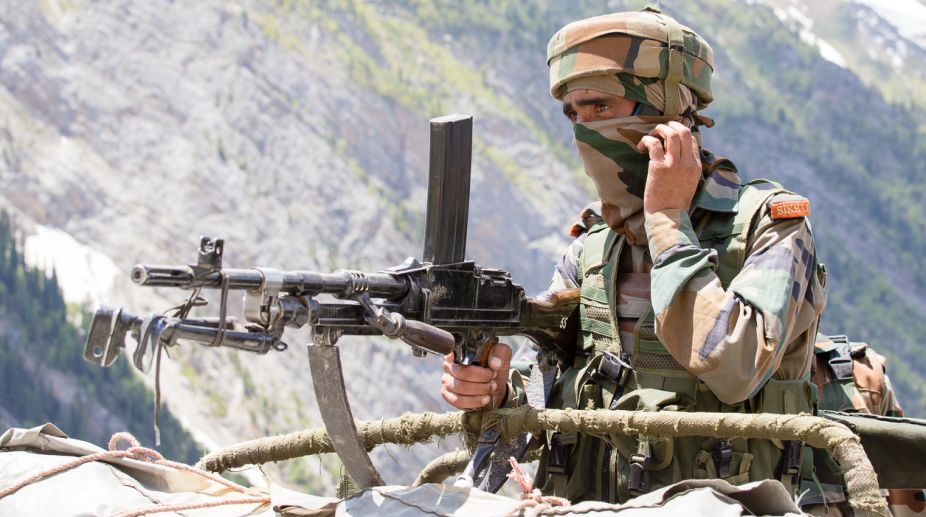Brahmastra veterans meet at Panagarh military station
Under the aegis of the Indian Army’s Eastern Command, Brahmastra Corps organised the Brahmastra Veterans Meet on Sunday at Panagarh Military Station.

Representational Image (Photo: Getty Image)
Sanity has eventually surfaced. That a cessation of hostilities along the International Border in Jammu and Kashmir (Pakistan prefers to call it a ‘working boundary’) was jointly announced by the Directors-General of Military Operations at their respective Army Headquarters ~ rather than a statement by political leaders ~ could possibly have a more authentic ring than anything spoken from a “soapbox”.
And it is indeed significant that during their interaction on the “hotline” (quite often reduced to an invective-exchange) the two senior officers agreed to revert to the 2003 ceasefire arrangement. That suggests a move with wider ramifications than halting the mortar and artillery assaults across the frontier in recent weeks.
Advertisement
Thousands have been displaced on both sides of the frontier, casualty figures vary, so do the number of “incidents, but the unanswered questions for both Generals is what did the violence of recent weeks achieve? Any tactical or strategic gains, or just an opportunity to flaunt a mistaken sense of izzat? It never ceases to amaze that two supposedly civilised countries, that often take pride in a shared heritage, can mutually indulge in such puerile behaviour at the cost of inflicting avoidable suffering on their own people.
Advertisement
It would therefore be pointless to nitpick over which officer first made the ceasefire proposal ~ no brownie points on offer ~ or try to read subtle differences in the text of the statements issued by both Armies. It must not be forgotten that the recent shelling was accelerated after a BSF spokesman suggested that the Rangers had waved a white flag after one of their bunkers were demolished: and the BSF circulated a video clip of the strike which was lapped-up by jingoistic TV channels. Catering to political audiences often exacerbates the hardships of the common folk.
Restraint and maturity pay greater dividends than bellicose statements from people positioned miles away from the firing-line. Having to leave a home and live in a “shelter” is not compensated by an enhanced vote-share, or the twirling of moustaches at GHQ Rawalpindi.
Hope rather than confidence would be in order. For while the DGMOs spoke of the 2003 arrangement (it was never sacrosanct), it would be unrealistic to imagine any substantial reduction in the back-up provided to militants operating in the Kashmir Valley, and to perceive that as distinct from mortar fire in the Jammu region. The external affairs minister’s assertion that terror and talks are incompatible is as futile as the Hurriyat’s demanding “clarity” and tripartite discussions.
All that would require a level of statesmanship no longer evident on the subcontinent. Perhaps if would be best to wish for a restoration of tranquillity on the IB , people to return to their villages to try to resume normal life, and use that “positive” to add impetus to other conciliatory moves in recent times. No headline-hunting, first let the fine print tell a reassuring story.
Advertisement